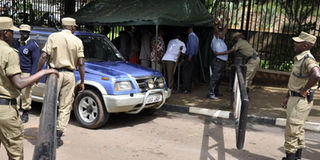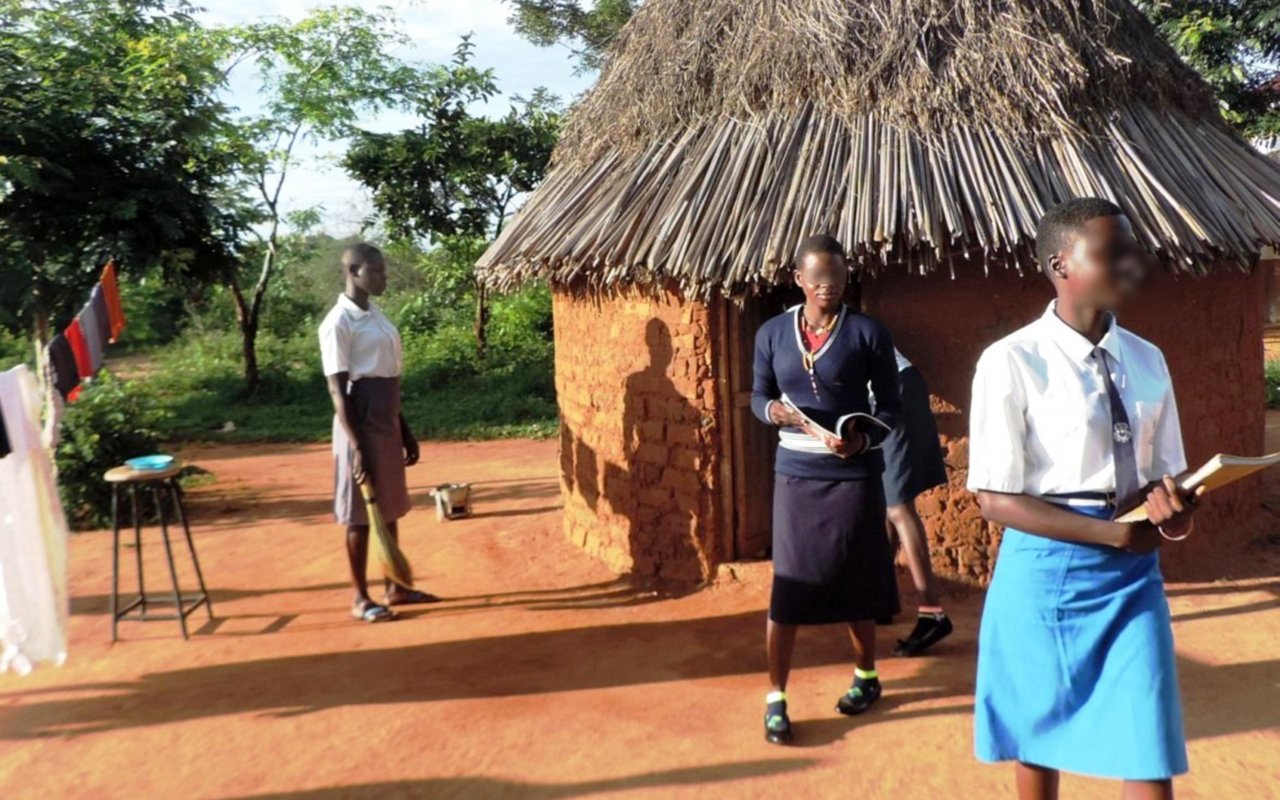Parliament security tight after pig protest

Members of the public seeking to access Parliament go through police checks at the House’s main gate yesterday. PHOTO BY GEOFFREY SSERUYANGE
Kampala
Stringent security measures have been instituted within and around Parliament following last week’s incident when disenchanted youth smuggled two piglets into the House to protest what they termed as a corrupt legislature, among other issues.
Among the new measures, all persons accessing Parliament adjacent President’s Office aka twin towers, will access their work placeS through the Parliament main gate.
As the new measures came into force, staff and visitors to the two offices occupied by government dignitaries, lined up in long queues as they went through metal detectors and their vehicles searched by security personnel and the anti-terrorism squad.
There was hold up of traffic on Parliamentary Avenue for about six hours as the security operation was underway. There were also long queues as members of the public tried to access Parliament.
Parliament spokesperson Hellen Kaweesa said it’s mandatory for all MPs and staff of both institutions and members of the public wishing to access the institutions to use the main gate and register all their details at the checkpoints. Access to the President’s Office through the Northern gate has also been limited to ministers and very important persons.
“That gate has been closed and is restricted to the President, vice president and the prime minister. All those who wish to access the offices have to go through the main gate. This is what has caused the delays at the Southern entrance,” Ms Kaweesa explained.
Since last Tuesday’s protest, there was talk that the Special Forces Command (SFC) had taken over security of Parliament.
However, Maj Chris Magezi, the SFC spokesperson, distanced the forces that guard the President from the move. “That is not true at all. Police are still in charge of security at Parliament,” Maj Magezi said yesterday.
Some legislators, however, opened expressed displeasure with the manner in which the checks were being carried out.




